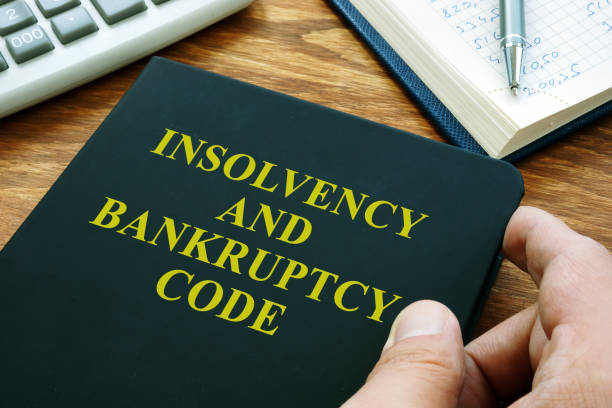
In our rapidly changing digital environment, the implementation of the Digital Personal Data Protection Act in 2023 marks a major advancement in
What does the Digital Personal Data Protection Act mean? What are its objectives?
In our rapidly changing digital environment, the implementation of the Digital Personal Data Protection Act in 2023 marks a major advancement in defending individual privacy rights and encouraging good data management practices. This ground-breaking law aims to strike a careful balance between upholding individual rights and satisfying organizations’ lawful needs for data processing, underscoring the rising significance of protecting personal data.
This Act’s primary goal is to regulate the processing of digital personal data while upholding people’s right to protect their data and admitting the need to handle and use it for legitimate purposes. The Act’s wording is simple and easy to understand, making it accessible to everyone. The Act also aims to create a thorough legal framework for India’s regulation of the protection of digital personal data.
In Singapore, a basic degree of protection for personal data is established under the Personal Data Protection Act (PDPA). It functions in conjunction with industry-specific legislation and regulations such as the Insurance Act and Banking Act. A number of regulations are outlined in the PDPA that regulate the collection, use, disclosure, and appropriate management of personal data in Singapore. It also establishes a nationwide ‘Do Not Call (DNC) Registry’ where people may register their Singapore phone numbers to opt out of receiving unwanted telemarketing calls from businesses.
With regard to the obligations of Data Fiduciaries (Organisations that handle data) and Data Principals (Those to whom the data belongs), the proposed law seeks to safeguard digital personal data in India. It seeks to improve living and business conditions, cultivate India’s digital economy and innovation ecosystem, and enact data protection legislation with the least amount of disturbance possible. The legislation is based on seven key tenets: Permission; legitimate, transparent use of personal data; restriction of data usage to specific purposes; minimization of data; accuracy of data; reasonable storage limits; and accountability of individuals and organisations for data breaches and violations.
“The law uses straightforward language and little cross-referencing, making it brief, understandable, and practical. It also acknowledges the role of women in the legislative branch. People have several rights, such as the ability to view details about how personal data is processed, the ability to update or remove data, the ability to file complaints, and the ability to designate a representative in the event of their demise or incapacity. Establishing security measures, reporting data breaches to the Data Protection Board and affected Data Principals, erasing data when no longer needed or upon consent withdrawal, keeping up a grievance redressal system, and adhering to additional requirements for Significant Data Fiduciaries are all required of Data Fiduciaries.
The measure also safeguards children’s personal information by forbidding harmful practises like tracking, monitoring, and targeted advertising while permitting processing with authorization from parents. Security, sovereignty, public order issues, research, archiving, statistical reasons, entrepreneurship, and upholding legal rights are among the exemptions included in the measure. The duties of the Data Protection Board include directing the investigation of data breaches and complaints, directing complaints to alternative dispute resolution processes, and recommending to the government that websites or apps belonging to Data Fiduciaries that consistently violate the terms of the bill be blocked.”1
Digital Assets
Digital assets are the result of the economy becoming more digitally connected. They are distinguished by their binary nature and potential or actual worth. Nonetheless, the extant literature lacks a consensus definition of digital assets. These assets are defined as electronic records containing an individual’s right or interest under the Revised Uniform Fiduciary Access to Digital Assets Act (RUFADAA), excluding underlying assets or liabilities unless those are also electronic records. Networked system assets, software assets, hardware assets, service assets, robotic assets, data assets, metadata assets, and digitally connected devices are only a few examples of the several forms of digital assets.
Particular legal problems occur when traditional civil rights objects move into electronic or digital formats. Legally speaking, it is reasonable to recognize them as digital assets given their particular qualities and requirement for specific legal handling. Differentiating between a wide and restricted definition of digital assets is crucial. All property that exists digitally or electronically and has the potential to be used in the transfer of wealth is considered a digital asset. Digital assets, in this context, are new economic entities created by the use of digital technology.
To guarantee the legal stability of property transfers involving digital assets, a specific legal framework must be established, either by modifying current civil legislation or by creating new rules. To develop conceptual approaches and recommendations for certain legal regimes, it is crucial to determine the legal character of these assets and separate them apart from analogous legal occurrences in digital form.2
Digital Inheritance
Introduction
“In Russia and across the world, digital assets are a relatively recent phenomenon. The law does not provide a suitable legal concept for relating digital objects to legal interactions. The term “digital inheritance” in international literature describes the global inheritance of digital assets such as email addresses, messages, digital bank cards, photo albums, and music choices on various platforms and applications. But no digital item that has worth or a personal, financial, or social link to a person may be included in the inheriting estate. The phrase “digital inheritance” should be used broadly to address legal difficulties pertaining to succession to digital assets, even though it is not used in the legislation of Russia or other foreign nations. Laws pertaining to “digital inheritance” ought to incorporate requirements that are applicable to inheritance relationships in a conventional manner.
When working with digital assets, privacy laws, personal data protection laws, and intellectual property laws must all be taken into account. The fact that digital assets are classified differently as objects of subjective rights for various purposes is the most significant part of the problem. Digital assets are conceptualized in two ways: narrowly and widely, with the largest definition characterizing the things in question as broadly as possible. This method makes it impossible to discern between new objects that need the establishment of a legal framework and civil rights, which have changed due to digitalization but do not require the establishment of new legal standards.
The unique characteristics of digital assets—their economic worth, transferability, digital nature alone, and extraterritoriality—are what make them the legal essence of civil rights objects in the limited sense. These characteristics define the spectrum of digital assets—such as large data, cryptocurrency assets, social media accounts, domain names, and virtual game property—that require the development of unique civil law regimes.
The term “digital inheritance” describes the distribution of digital assets to designated or undesignated recipients from a dead person’s estate. This procedure entails locating the digital assets and determining the heirs’ rights to utilize and access them following the death of the individual. These assets could be kept on platforms owned by the departed or managed by service providers in our lives that are becoming more and more digitally dependent. Digital assets are fleeting and always evolving, in contrast to physical assets.
Outdated estate and privacy regulations create obstacles in the digital inheritance process because they are out of step with the way individuals spend their lives online. The rights to intellectual property, user privacy, and the legal obligations of internet businesses are major issues. A complex aspect of digital inheritance is people’s many online identities. These days, a lot of internet service providers let consumers decide what happens to their data and access rights when they pass away. Digital content that has sentimental significance for the departed person’s heirs and informative value for society’s digital legacy can both be preserved with the aid of this technique.
Benefits
A vital procedure known as “digital inheritance” enables surviving family members to view and get copies of a departed loved one’s emails, blogs, social media accounts, and other online materials. This is quite nostalgic and might help with the mourning process. When a digital asset is transferred to their heirs, it retains its economic worth for the original user. By promoting appropriate digital preservation techniques rather than deleting or abandoning the material of departed users, digital inheritance also benefits the preservation of a society’s digital legacy.
Developing a digital estate plan, which may be legally included in a will or kept informal, is an essential part of managing your digital legacy. It’s crucial to assign someone to handle digital assets and to regularly backup those assets. Tools for managing passwords, such as safe storage and password release, are also essential. It is possible for companies to request confirmation from two verifiers and a death certificate before disclosing the password.
After a user passes away, digital inheritance services make it easier for beneficiaries to inherit social media accounts and digital cryptocurrency holdings. By combining their file storage services, bitcoin wallets, and social media accounts into a single “vault,” users can minimize risk and cut down on the number of extra asset transfers that are required. Social media companies have protocols and processes in place for confirming the identity and passing of deceased users. For example, Twitter does not grant access to profiles but does let accounts be canceled by verified family members or authorized individuals. Traditional contacts can be added to an Apple ID, giving consumers access to the contents of their iCloud account for a maximum of three years, after which the account will be erased. When a member passes away, their LinkedIn profile can be memorialized or deleted. This procedure can be started by someone with legal authority and the necessary paperwork, or it can be triggered by reports from uninvited parties.
Challenges
The inadequacies in heritage and privacy laws’ adaptation to the needs of the contemporary digital era provide issues for digital inheritance. Terms of service are used by online service providers, including social networking sites, email services, and cloud storage providers, to describe their privacy rules. These policies can be used as justifications for not allowing a deceased user’s family member to access their account. The division of ownership between an online account and the information published inside it—which is regarded as the user’s intellectual property—gives rise to legal disputes. The Stored Communications Act (SCA), which forbids service providers from providing electronically stored material to third parties, is influencing how internet service companies in the US set their terms of service. It may be difficult for heirs to obtain data if contracts with service providers automatically expire upon the death of the consumer.
Solutions
Several ideas have been made to solve the issues of digital inheritance. Reducing the liability of internet service providers by amending the Stored Communications Act (SCA) to let beneficiaries of digital assets access their accounts. Another is to pass federal legislation giving authorized estate custodians complete access to the accounts of users who have passed away. This would be different from estate law which is often based on states.
A third suggestion is for internet service providers to honor users’ right to privacy by giving them choices about what happens to their stuff when they pass away. Introduced in 2015, the Revised Uniform Fiduciary Access to Digital Assets Act (RUFADAA) aims to strike a compromise between the privacy concerns of users and service providers and the interests of digital asset managers. If an online tool or the user’s will permits it, RUFADAA grants access to electronic communications to the personal representative of an online account user. The online service provider’s terms of service are still in force and the provider has the authority to prevent trustee access to electronic communications if no consent is recorded. RUFADAA was enacted in 47 states as of 2021.”3
“Digital assets can be inherited in a variety of ways. Legally speaking, these items can be divided into many categories to ascertain the likelihood of succession with regard to them.
- Individual profiles on social media platforms, online music services (like Spotify and Netflix), multiplayer video games, and domain names.
- Content generated by the dead or received under license agreements, as well as content saved in cloud storage (such as music, films, and images), as well as content on social media pages, including diaries and factual entries. Software is also included in this category.
- Additional digital assets, such as tokens and wallets for cryptocurrencies, that are contained within digital platforms and that can only be accessed with login credentials.
There is a notable distinction between Russian and international researchers about the notion that digital assets have as property in and of themselves. Scholars from Russia link digital assets to the tokenization of tangible items, resulting in the creation of a new digital “form of expression” for conventional civil rights objects. This strategy has resulted in false claims that digital tokens are susceptible to state registration and have no inherent value. Digital assets are often viewed from both the American and European viewpoints as separate legal entities with autonomous worth inside legal relationships.
One of the main points of contention when it comes to social media account inheritance is the question of whether the user account and its content are property. User accounts are created according to agreements between service providers and their clients, and inheritance estates may contain rights derived from these agreements that specify who users have access to certain resources and media services.
Photographs, movies, writings, and other types of digital content—which is frequently the product of human creativity—are frequently shielded as subjects of exclusive intellectual property rights. It is possible to inherit exclusive rights to these items in line with the rights that were in place at the time of inheritance. Finding the rightful owner of digital property can be difficult, though, particularly if it includes work done by other people or if the heir’s rights are restricted by licensing contracts.
Succession of digital inheritance
Heirs take over all the deceased’s property and transferable rights in most states, putting them in the deceased’s position. Digital assets can be inherited under the German Civil Code’s § 1922 and the Russian Civil Code’s Article 1112, barring special laws. When it comes to transferring their rights, some digital assets, particularly those that include the transfer of content, access to these assets, and personal or other information, provide difficulties.
These assets could include private information about the lives of other people, such communication partners, who are not in the circle of heirs, in addition to the personal information of the deceased. Furthermore, the decedent may not have wanted their sensitive or private information to be shared, not even with their heirs, to be revealed in information shared on social media accounts or submitted during registration. Determining whether it is acceptable for the information holders to provide such information to their heirs instead of according to the laws of inheritance may be necessary to resolve these disputes.
This issue is presently up for discussion in the field of foreign law. Although the GDPR does not provide precise guidelines for the transfer of deceased people’s data, Italian inheritance law has provisions governing such transfers. The GDPR has prompted national legislatures to develop measures relating to data protection for deceased persons. Member states must create legislation for the handling of such data. In conclusion, the negotiability of digital assets restricts their inheritance since, typically, their informational value prevents them from being transferred to other parties against the owner’s will.”4
The Digital Personal Data Protection Act, introduced in 2023, is a significant step in safeguarding individual privacy rights and promoting responsible data management practices. It aims to balance individual rights with legitimate organizational data processing needs, emphasizing the importance of personal data protection. The Act establishes a clear legal framework for digital personal data protection in India, addressing the roles of Data Fiduciaries and Data Principals. It is based on seven key principles, including consent, transparent data use, data minimization, data accuracy, storage limits, and accountability for data breaches. Digital assets, such as networked system assets, software assets, and hardware assets, can create legal challenges as traditional civil rights objects transition into electronic or digital formats. Solutions for digital inheritance include amending existing laws, passing new federal legislation, and enabling users to determine the fate of their digital assets after death.
- Salient Features of the Digital Personal Data Protection Bill, 2023. (n.d.). https://pib.gov.in/PressReleaseIframePage.aspx?PRID=1947264
- Kharitonova, Y. (2021, February 28). Digital assets and digital Inheritance. ResearchGate. https://doi.org/10.13140/RG.2.2.24010.08641
- https://academic-accelerator.com/encyclopedia/digital-inheritance
- Kharitonova, Y. (2021, February 28). Digital assets and digital Inheritance. ResearchGate. https://doi.org/10.13140/RG.2.2.24010.08641










